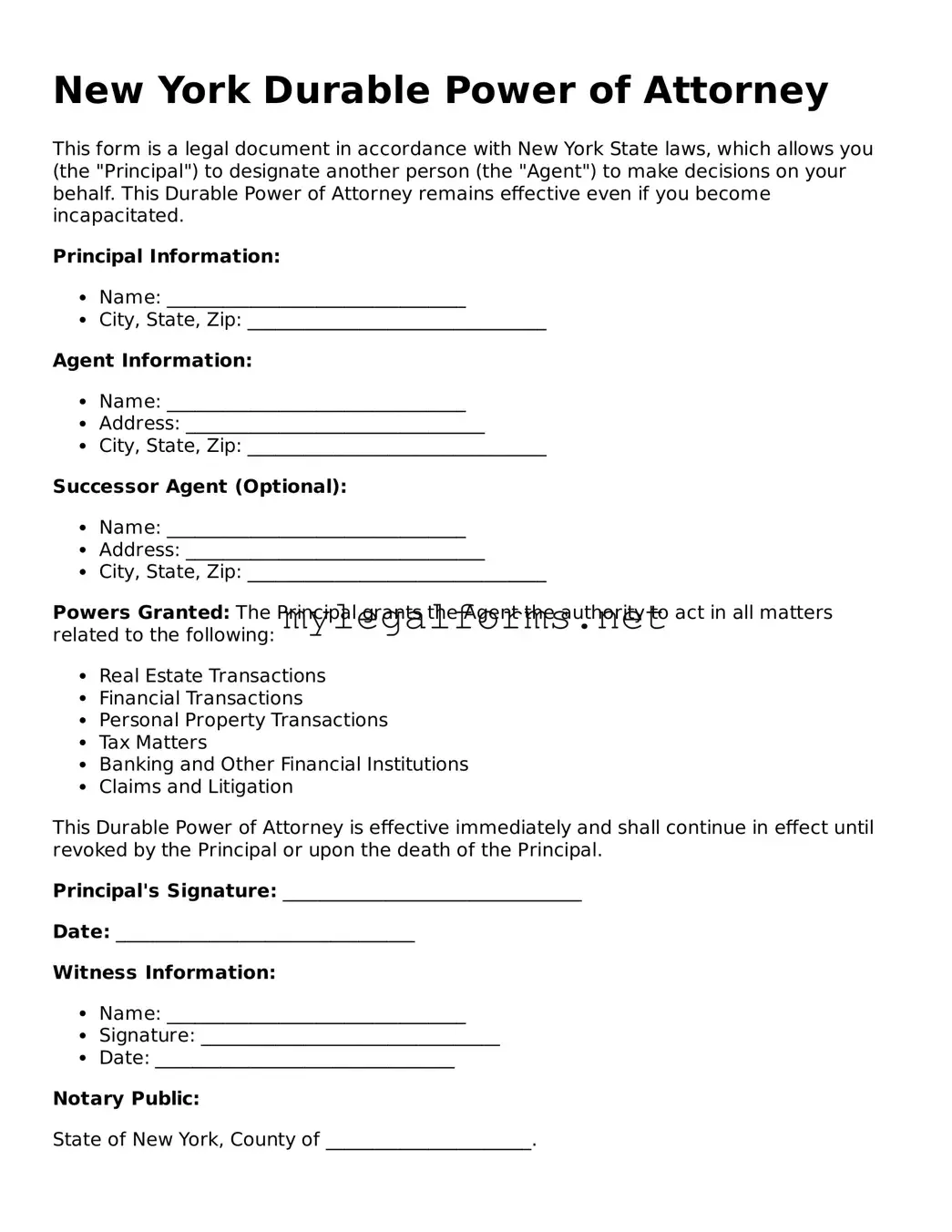Durable Power of Attorney Document for New York State
A New York Durable Power of Attorney is a legal document that allows an individual to appoint someone else to manage their financial and legal affairs, even if they become incapacitated. This form empowers your chosen agent to make decisions on your behalf, ensuring that your interests are protected when you cannot act for yourself. Understanding its importance can help you plan for the future with confidence.
Launch Durable Power of Attorney Editor

Durable Power of Attorney Document for New York State
Launch Durable Power of Attorney Editor

Launch Durable Power of Attorney Editor
or
⇓ PDF Form
Complete the form at your pace — fast
Finish your Durable Power of Attorney online and download the final version.